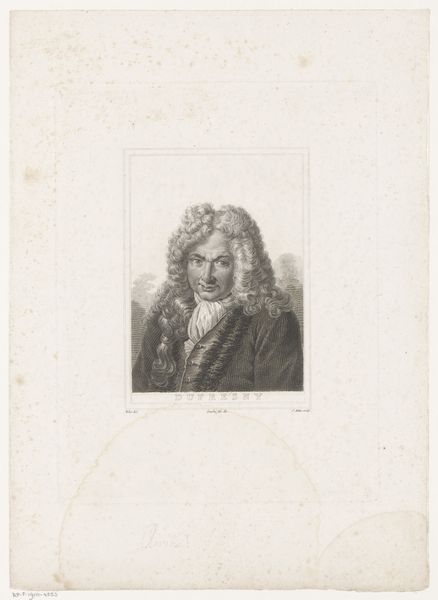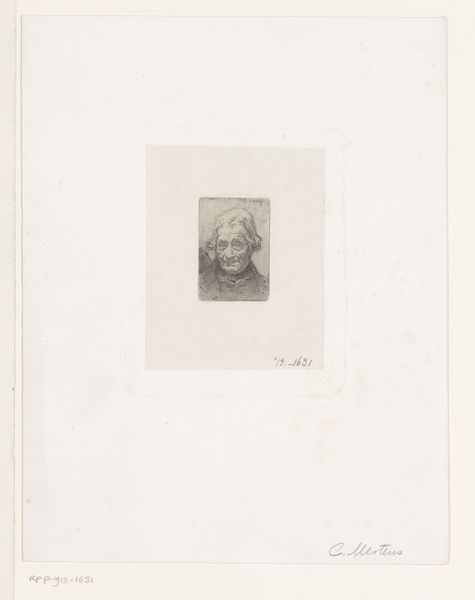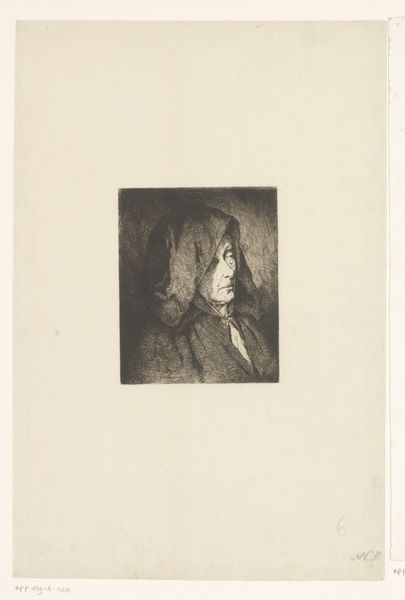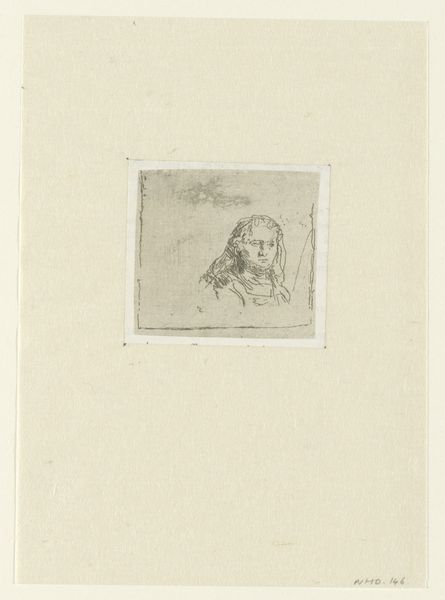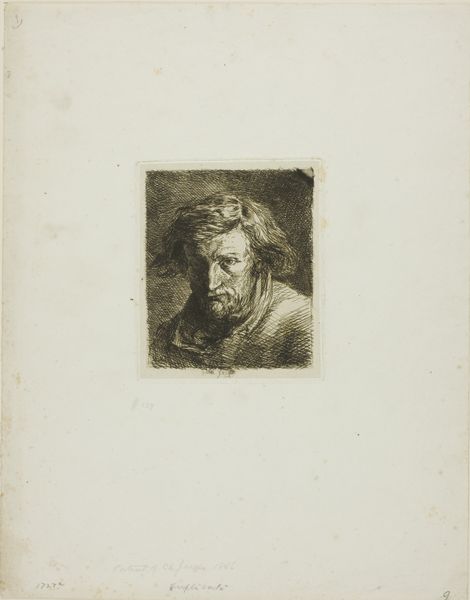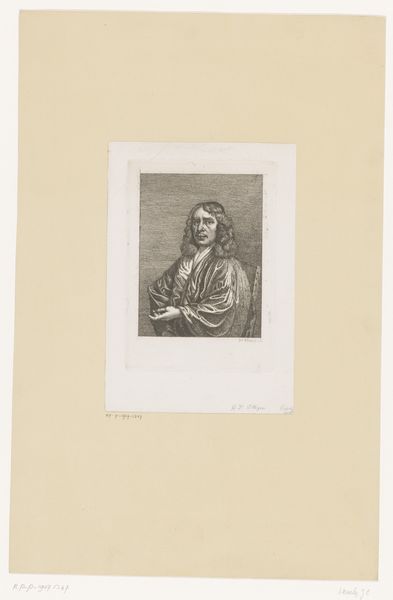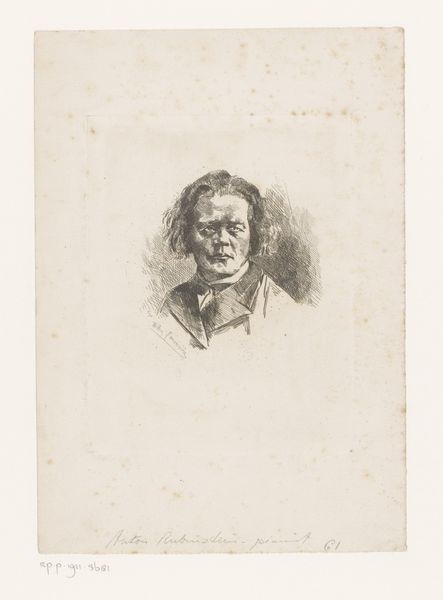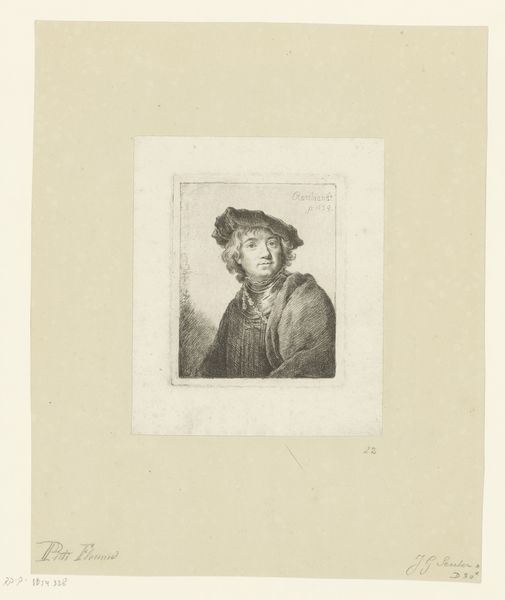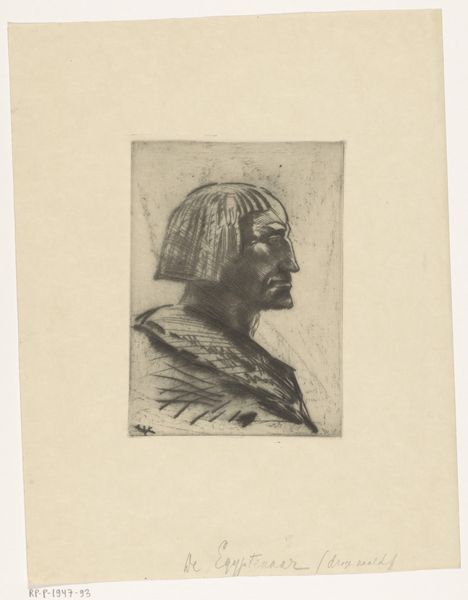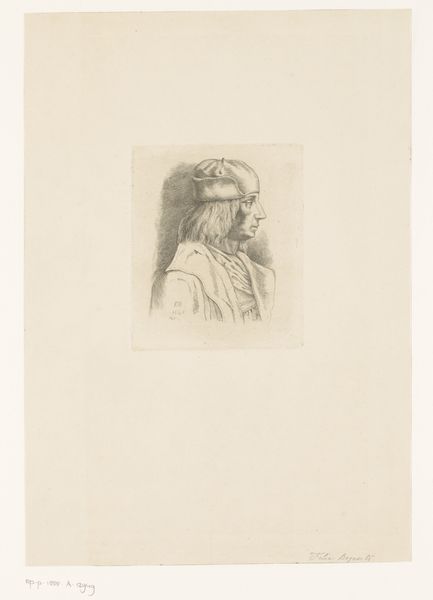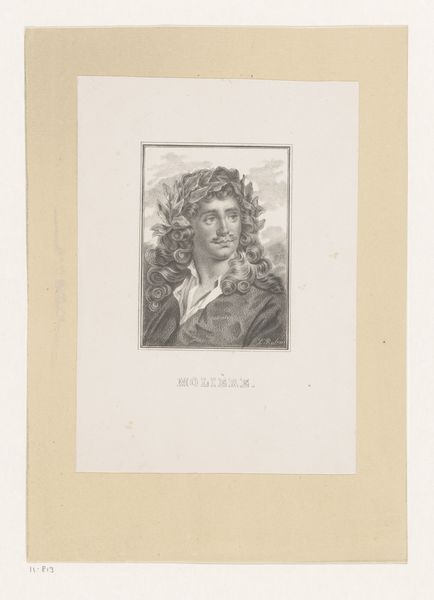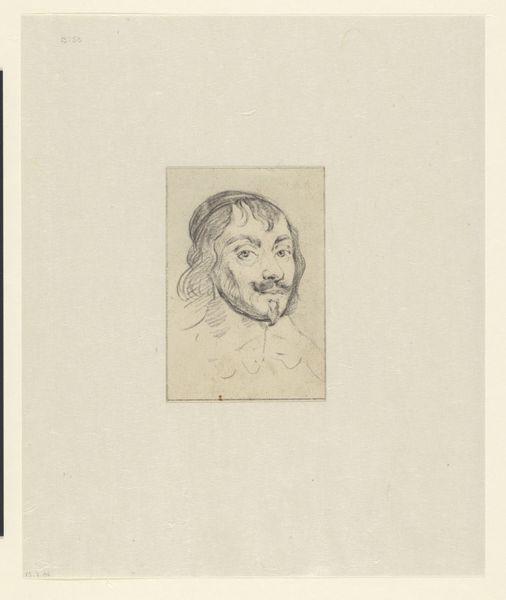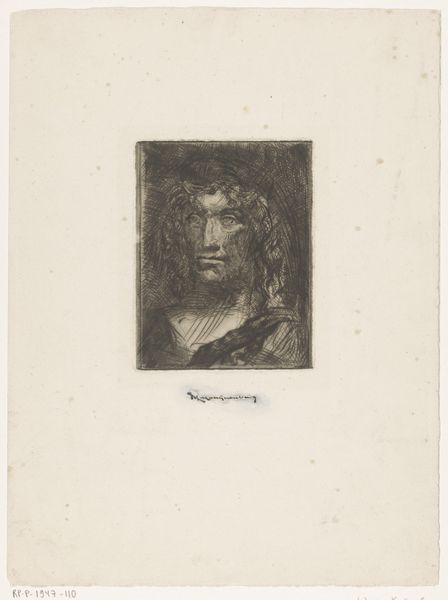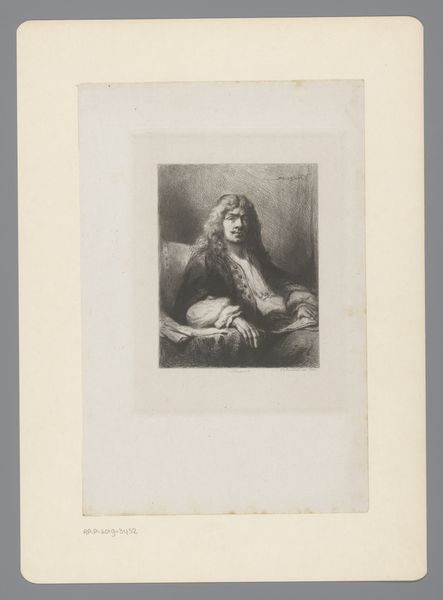
drawing, ink
#
portrait
#
drawing
#
ink
#
academic-art
#
realism
Dimensions: height 97 mm, width 79 mm
Copyright: Rijks Museum: Open Domain
Curator: Materially, we're looking at an ink drawing, “Portrait of an Unknown Old Woman,” created sometime between 1852 and 1890 by Willem Linnig. Editor: It's amazing the artist captured so much detail, so many lines, in the woman's face using just ink. I am fascinated by how such delicate materials convey age. What is it that grabs your attention here? Curator: I’m interested in the materials themselves. The accessibility of ink in this period democratized portraiture. This wasn't some grand oil painting commissioned by the elite. The availability of cheaper paper and drawing implements broadened artistic expression. Consider who could afford to commission or create such a portrait and what their intentions may have been? Editor: So, you are suggesting that the accessibility of the materials influenced the art's very existence and possibly even its subject? Someone who might not have been typically deemed worthy of portraiture could have become a subject. Curator: Precisely. Think about the labor involved: the mass production of ink, paper, the social position of the artist himself. Linnig chose ink, which then challenges the established hierarchy of art materials like oils and sculptures. Editor: It is incredible to think of it like that, framing art with the industrial picture of that time! Now I am more mindful about how this image would have fit into a broader commercial landscape. Curator: Indeed, analyzing art through a materialist lens allows us to see the relationship between the work and its surrounding society in a fresh and different way.
Comments
No comments
Be the first to comment and join the conversation on the ultimate creative platform.
